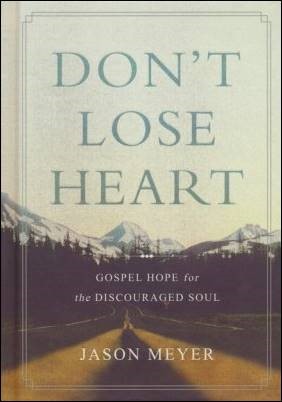 In a world surrounded by 24-hour news and reminders on social media of tragedy and heartache, it’s easy to fall into the abyss of discouragement and anxiety. Even Jesus followers struggle to hold on to hope. What is the hopeful guidance from God’s Word for times when you feel overwhelmed, defeated, and worthless? How can the Bible help you conquer despair when the past paralyzes, today disappoints, and the future is frightening?
In a world surrounded by 24-hour news and reminders on social media of tragedy and heartache, it’s easy to fall into the abyss of discouragement and anxiety. Even Jesus followers struggle to hold on to hope. What is the hopeful guidance from God’s Word for times when you feel overwhelmed, defeated, and worthless? How can the Bible help you conquer despair when the past paralyzes, today disappoints, and the future is frightening?
Bible Gateway interviewed Jason Meyer (@WePreachChrist) about his book, Don’t Lose Heart: Gospel Hope for the Discouraged Soul (Baker Books, 2019).
What do you mean “discouragement is a liar”?

Jason Meyer: Discouragement is a sophisticated lie because it comes clothed in a half-truth. Discouragement gets only half of reality right. It reminds us of all that is against us. And that is true. A fallen world is full of real reasons to lose heart. The Bible recognizes this reality. It was natural for Elisha’s servant to lose heart when he saw that the Syrian army was surrounding them. But Elisha prayed that his servant would see the full truth, not the half-truth. “Those who are with us are more than those who are with them” (2 Kings 6:16). We lose heart when we believe the lie that all that is against us is greater than the one who is for us. We lose heart when we lose sight of all we have in Christ. There are real reasons to lose heart, but the reasons to take heart are always greater.
Continue reading →











 By Kasey Van Norman
By Kasey Van Norman





